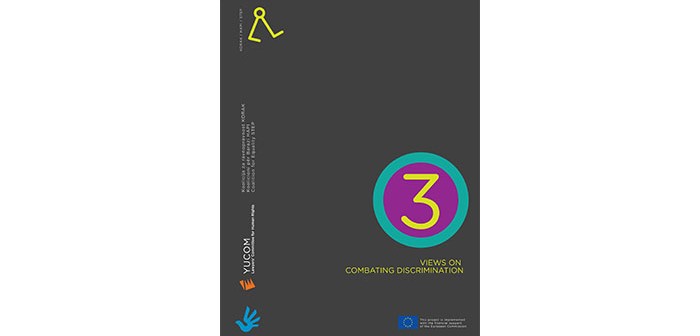The anti-discrimination laws were adopted in Serbia (2009), Kosovo (2004) and Montenegro (2010). However, despite their existence, these laws are rarely implemented completely, i.e. they are not applied adequately during anti-discrimination trials, thus often breaching the right to a fair trial guaranteed by the constitutions and international conventions.
LEGAL FRAMEWORK – SERBIA
The Anti-Discrimination Law was adopted in 2009, and it presents a system, umbrella law which defines discriminatory behavior as any unwarranted discrimination or unequal treatment based on the grounds of race, skin color, ancestors, citizenship, national affiliation or ethnic origin, language, religious or political beliefs, gender, gender identity, sexual orientation, financial position, birth, genetic characteristics, health, disability, marital and family status, previous convictions, age, appearance, membership in political, trade union and other organizations and other real or presumed personal characteristics. Persons accused of discrimination may be tried in civil or criminal proceedings, depending on the committed act of discrimination.
LEGAL FRAMEWORK – KOSOVO
Discrimination is prohibited by the Constitution of the Republic of Kosovo4 which guarantees equality and respects the principle of human rights. Discrimination is prohibited by Article 24 of the Constitution, which emphasizes equality before the law. The Constitution stipulates that everyone has the right to equal legal protection without discrimination, and that no one shall be discriminated against on grounds of race, color, gender, language, religion, political or other opinion, national or social origin, relation to any community, property, economic and social condition, sexual orientation, birth, disability or other personal status. Kosovo is one of the first countries in the region which adopted the Anti-Discrimination Law in 2004. However, due to numerous imprecise provisions in the Law, its implementation is very slow. Since there is no body which would take over the cases of discrimination, there are problems with solving of the proceedings. Furthermore, the Anti-Discrimination Law does not offer effective protection against discrimination, since the victims face very complicated system which cannot help them in adequate way.
LEGAL FRAMEWORK – MONTENEGRO
Montenegrin Anti-Discrimination Law of 2010 defines discrimination as “any unjustified, legal or actual, direct or indirect distinction or unequal treatment, or failure to treat a person or a group of persons in comparison to other persons, as well as exclusion, restriction or preferential treatment of a person in comparison to other persons, based on race, color of skin, national affiliation, social or ethnic origin, affiliation to the minority nation or minority national community, language, religion or belief, political or other opinion, gender, gender identity, sexual orientation, health conditions, disability, age, material status, marital or family status, membership in a group or assumed membership in a group, political party or other organization, as well as other personal characteristics.”





